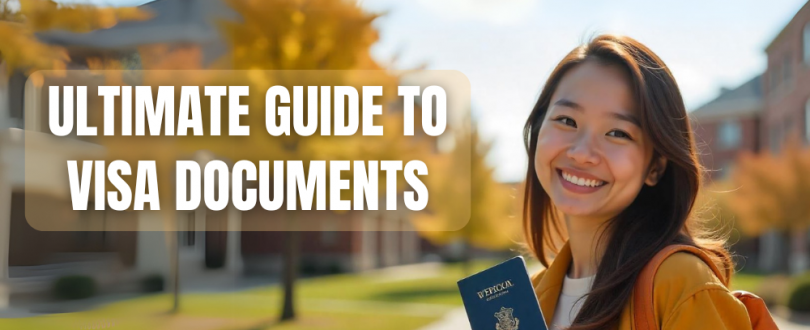
Let’s face it—visa paperwork can feel like diving into a sea of forms, legal lingo, and government websites that look like they haven’t been updated since 2005. If you plan to travel, study, work, or move abroad in 2025, you’re probably wondering, What documents do I need for a visa? And more importantly, how do I not mess this up?
Good news: you stumbled on the ultimate guide to visa documents in 2025. Whether you’re applying for a U.S. visa, a Schengen visa, a Canadian work permit, or a student visa to Australia, this post will walk you through the essentials, conversationally and without the bureaucratic jargon.
What Is a Visa, and Why Do You Need One?
A visa is an official endorsement in your passport (or a digital authorization) that allows you to enter, stay in, or leave a country for a specific purpose, like tourism, work, study, or migration. It’s basically the permission slip from the country you’re visiting.
Core Documents Required for Most Visa Applications
– Valid Passport: At least 6 months validity, 1–2 blank pages.
– Visa Application Form: Official form from the country’s embassy/consulate.
– Passport-Sized Photos: Specific dimensions and background.
– Proof of Travel: Flight reservation, itinerary, or invitation letter.
– Proof of Accommodation: Hotel booking, rental, or host invitation.
– Proof of Funds: Bank statements, pay slips, or sponsor documents.
– Travel Insurance: Required in many countries (e.g., Schengen area).

Additional Documents Based on Visa Type
Tourist Visa
– Employer leave approval
– Travel itinerary
– Proof of home country ties
Student Visa
– Acceptance letter from school
– Proof of tuition payment or scholarship
– Transcripts and language test results
Work Visa
– Job offer or employment contract
– Labor certification or work permit
– Resume/CV and credential copies
Business Visa
– Invitation letter
– Company registration docs
– Meeting agenda or correspondence
Family/Spouse Visa
– Marriage or birth certificate
– Proof of relationship
– Sponsor documents
Digital Visa Applications in 2025
Most countries now require online submission. Key points:
– Scan documents in high quality
– Use e-signatures where required
– Pay fees online and save receipts

How Early Should You Prepare?
Three months in advance is ideal to avoid last-minute stress, delays, or rejections.
Common Mistakes to Avoid
– Using expired or outdated documents
– Wrong photo format
– Untranslated documents
– Inconsistent information
– Ignoring country-specific rules
Country-Specific Tips for 2025
United States
DS-160, interviews, and strong ties to your home country are essential.
Schengen Area
Travel insurance, ETIAS (for visa-free travelers), and proof of funds are key.
Canada
Express Entry, biometrics, and LMIA (for workers) apply.
Australia
GTE statement, health checks, and character assessments are required.
Pro Tips from Visa Experts
– Use a checklist or a visa organizer app
– Rely on official embassy websites
– Ask professionals if unsure
– Always be honest and transparent
Frequently Asked Questions About Visa Documents
1. What are the most important visa documents?
Passport, visa application form, financial proof, and purpose-specific documents like invitation or offer letters.
2. Can I apply for a visa without all documents?
No. Missing even one required document can lead to denial.
3. Are scanned copies acceptable for visa applications?
Some countries accept scans for online submission, but originals are usually required at interviews.
4. How long should my bank statements cover?
Usually 3 to 6 months, but this can vary.
5. Do I need to notarize all my documents?
Only certain documents, like translations or legal certificates, typically need notarization.
6. What if I lost a document after applying?
Notify the embassy immediately. You may need to submit an affidavit or reissue the document.
Final Thoughts
Getting a visa in 2025 doesn’t have to be overwhelming. Be organized, follow country-specific rules, and double-check everything. Whether it’s a short trip or a big move, having the right documents is your first step to a successful journey.
Still have questions? Drop them in the comments or reach out—we’re here to help you travel smarter.

